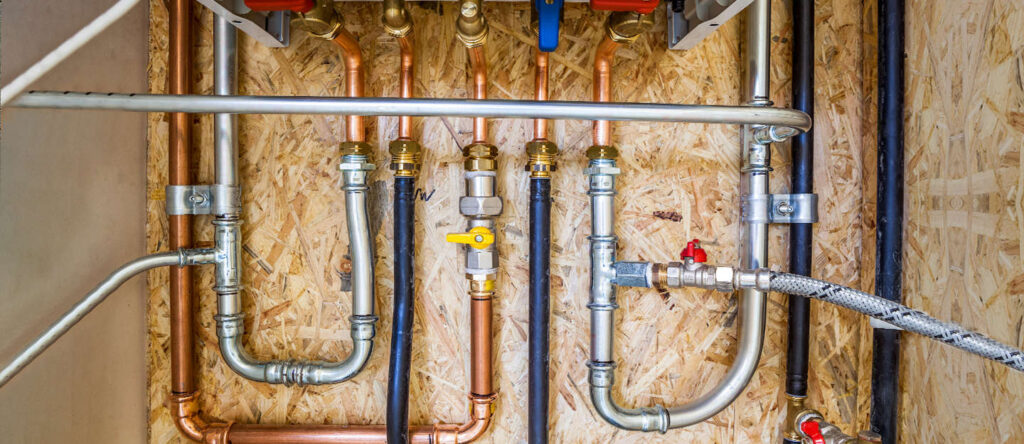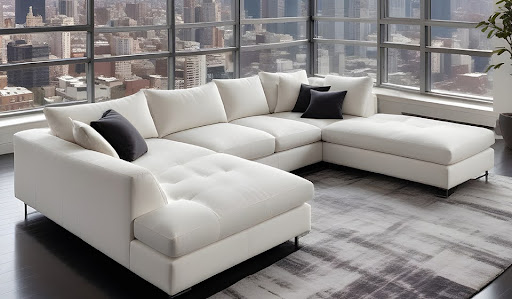
plumbing
Plumbing is an essential element of every building. It’s responsible for bringing fresh water in and taking waste water out through multiple pipes. Each of these pipes is made of different components and serves various purposes. If you’ve been curious about the type of pipes a plumber in Burwood uses to enable the plumbing work to happen effectively, this blog is for you. We bring a detailed write-up of the 10 most common types of pipes used in plumbing. Read on to learn more about it-
PVC Pipes
PVC pipes are the most common plumbing pipes used by any local plumber in Burwood for residential plumbing. They are white or light grey and have a diameter of ½ inch to 4 inches. PVC stands for polyvinyl chloride and it is a thermoplastic polymer. PVC pipes are strong, durable, and easy to install, which makes them a popular choice for homeowners. Its usage is extensive in making sewage pipes and other pipe applications where cost or vulnerability to corrosion limits metal use.
ABS Pipes
ABS pipes are also standard in residential plumbing. They are black and have a diameter of 3 inches or less. ABS stands for acrylonitrile butadiene styrene, a synthetic rubber. ABS pipes are impact resistant and easy to install, which makes them a good choice for areas that experience freezing temperatures. However, these also have limitations and aren’t suited for hot water since they can damage the pipes.
Copper Pipes
Copper pipes are the most prefered by the best plumbers in Burwood for commercial plumbing. They are reddish-brown and have a diameter of ½ inch to 2 inches. Copper is a durable metal resistant to corrosion, making it ideal for plumbing use. They are also highly versatile and suitable for both hot and cold water. However, the only setback with copper pipes is that they are more expensive than other types, so they are not as common in residential applications.
PEX Pipes
PEX pipes are made from cross-linked polyethene and have a diameter of 3/8 inch to 1 inch. These are flexible, making them easy to install. However, the PEX pipes aren’t suitable for use with hot water as it can damage the pipe. The most common colours in PEX pipes are red, blue, or white, which makes it easy to identify the piping for specific applications such as hot or cold water lines.
Galvanised Steel Pipes
Galvanised steel pipes are steel coated with zinc to protect it from corrosion. Galvanised steel pipes have a diameter of 1/2 inch to 4 inches and can be equally useable with hot and cold water. However, the only demerit is that they can rust over time, so they may not be the best choice for long-term use.
Black Iron Pipes
The technicians heat steel to the extent that it turns black, thus forming the black iron pipes. It has a diameter of 1/2 inch to 6 inches and is usable for hot and cold water lines. However, the black iron pipe isn’t the best if you want it for natural gas lines because the gas can cause the pipe to corrode from the inside out. Black iron pipes will rust over time, so you will require a plumber in Burwood for regular maintenance, which will help prevent leaks and other damages.
Stainless Steel Pipes
As the name suggests, steel is the prominent material in building stainless steel pipes. It also contains chromium which gives the steel its corrosion resistance. Stainless steel pipes have a diameter of 1/2 inch to 4 inches and are equally fit for hot and cold water lines. However, stainless steel is more expensive than other types of steel. Therefore, the local plumbers in Burwood avoid using it as much as they use other metals.
Cast Iron Pipes
Cast iron pipes were once the most popular pipe used in plumbing, but they have fallen out of favour due to their weight and high cost. These pipes are 3 inches or more in diameter and suit hot and cold water lines. Cast iron is durable but also heavy, making it challenging to work with. Also, cast iron is susceptible to corrosion, so it must be regularly maintained to prevent leaks.
Clay Pipes
Clay pipes date back thousands of years but aren’t a favourite now after the invention of plastic pipes. Though these aren’t common now, there are still many old homes where one can find clay pipes. These have a diameter of 3 inches or less and are suited for both hot and cold water lines. The only demerit of clay pipes is that they are not as durable as the other types of pipes, so most homeowners tend to avoid them.
Concrete Pipe
Concrete pipe is made from cement and gravel that gains the shape of a pipe through moulding the mince to a pipe. Concrete cannot easily be bent, so it is typically used for larger piping applications such as drainage. It is durable but tends to rust over time when paired with metal piping. Usually, concrete pipes have a rust-resistant coating to help prolong its life span.
In a Nutshell
As you can see, various types of pipes are useable according to your needs. You can talk with the best plumber in Burwood for your requirement, and they can suggest the best pipes that are durable, cost-effective and suit your needs.
Approach Doyle Plumbing Group if you want advice or services from reliable plumbing professionals.



